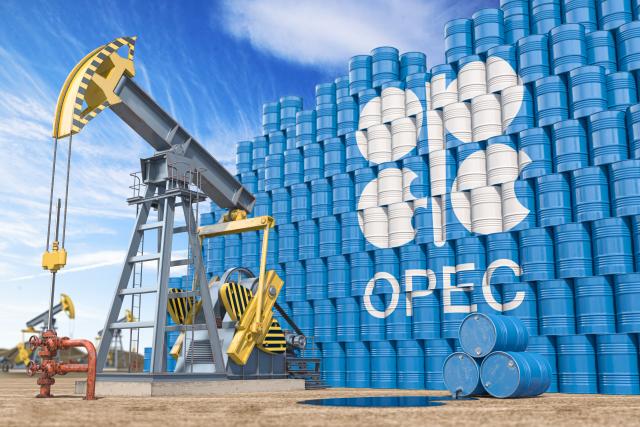
OPEC+ has said it will stick to its plan of gradually increasing oil production by 400,000 barrels a day each month. (Source: Shutterstock.com)
U.S. oil prices rose to the highest level in seven years after OPEC+ said it would stick to an existing pact for a gradual increase in oil output. The Organization of the Petroleum Exporting Countries, Russia and their allies, known as OPEC+, snubbed calls from the White House and declined to accelerate plans to increase crude production, adding to inflationary pressures that consuming nations fear will derail an economic recovery from the pandemic.
OPEC+ has faced calls for from big consumers including U.S., Europe and India for extra supplies after oil prices surged more than 50% this year. Both Europe and Asia have been gripped by tight energy supplies that have pushed natural gas and coal prices to record highs, while oil prices have been rising steadily as the world economy has rebounded from the impact of the pandemic.
OPEC+ "reconfirmed the production adjustment plan", the group said in a statement issued after online ministerial talks, referring to a previously agreed deal under which 400,000 barrels per day (bpd) would be added in November, Reuters reported.
Following the announcement, WTI jumped by 3% to more than $78 a barrel for the first time since 2014, while Brent crude rose to $82 a barrel for the first time in three years.
"We will be monitoring the situation, as we know, demand usually falls in the fourth quarter," Russian Deputy Prime Minister Alexander Novak said after the talks, adding that he believed the market is now balanced.
OPEC’s de facto leader Saudi Arabia declined to explain its strategy or whether it believes the oil market is under supplied.
But people familiar with discussions said Prince Abdulaziz bin Salman, the country’s energy minister, did not believe oil prices have risen substantially enough in recent months to justify changing course, despite other energy commodities having surged, according to the Financial Times.
In July, OPEC had agreed to boost output by 400,000 bpd a month until at least April 2022 to phase out 5.8 million bpd of existing production cuts—already much reduced from the huge curbs that were in place during the worst of the pandemic.
Demand has bounced back swiftly, while supply has been disrupted by factors that include hurricanes that have hammered U.S. production and low levels of investment across the industry during the depths of the pandemic when demand cratered.
A senior aide to U.S. President Joe Biden met Saudi Crown Prince Mohammed bin Salman in Saudi Arabia on a range of issues last week, saying oil was "of concern". India, another big oil consumer, has pushed for more supply.
"The outcome of the OPEC+ meeting was no surprise, but when prices are at above $80 per barrel Brent, this is a level that makes customers uncomfortable and producers happy but cautious," consultancy Rystad Energy said.
Analysts had said they expected uncertainty about the impact on demand from variants of the coronavirus, which threaten fresh economic disruption, to weigh on OPEC+ decision-making.
Recommended Reading
EOG Testing 700-ft Spacing in Ohio’s Utica Oil Window, Sees Success
2024-08-05 - EOG Resources’ test at the northern end of its 140-mile-long north-south leasehold produced IPs similar to those from a nearby pad.
Powder in the Hole: Devon May Fire up its PRB in Coming Years
2024-08-23 - Devon Energy is perfecting its spacing and completion recipe in Wyoming’s Powder River Basin play to possibly unleash full-field development later this decade.
Baytex Energy Joins Eagle Ford Shale’s Refrac Rally
2024-07-28 - Canadian operator Baytex Energy joins a growing number of E&Ps touting refrac projects in the Eagle Ford Shale.
Avant Natural Resources Steps Out with North Delaware Avalon Tests
2024-08-21 - With the core of the Delaware Basin in full manufacturing mode, Avant Natural Resources is pushing an operated portfolio into the northern reaches of the New Mexico Delaware.
Devon Energy Expands Williston Footprint With $5B Grayson Mill Deal
2024-07-08 - Oklahoma City-based Devon Energy is growing its Williston Basin footprint with a $5 billion cash-and-stock acquisition from Grayson Mill Energy, an EnCap portfolio company.
Comments
Add new comment
This conversation is moderated according to Hart Energy community rules. Please read the rules before joining the discussion. If you’re experiencing any technical problems, please contact our customer care team.





